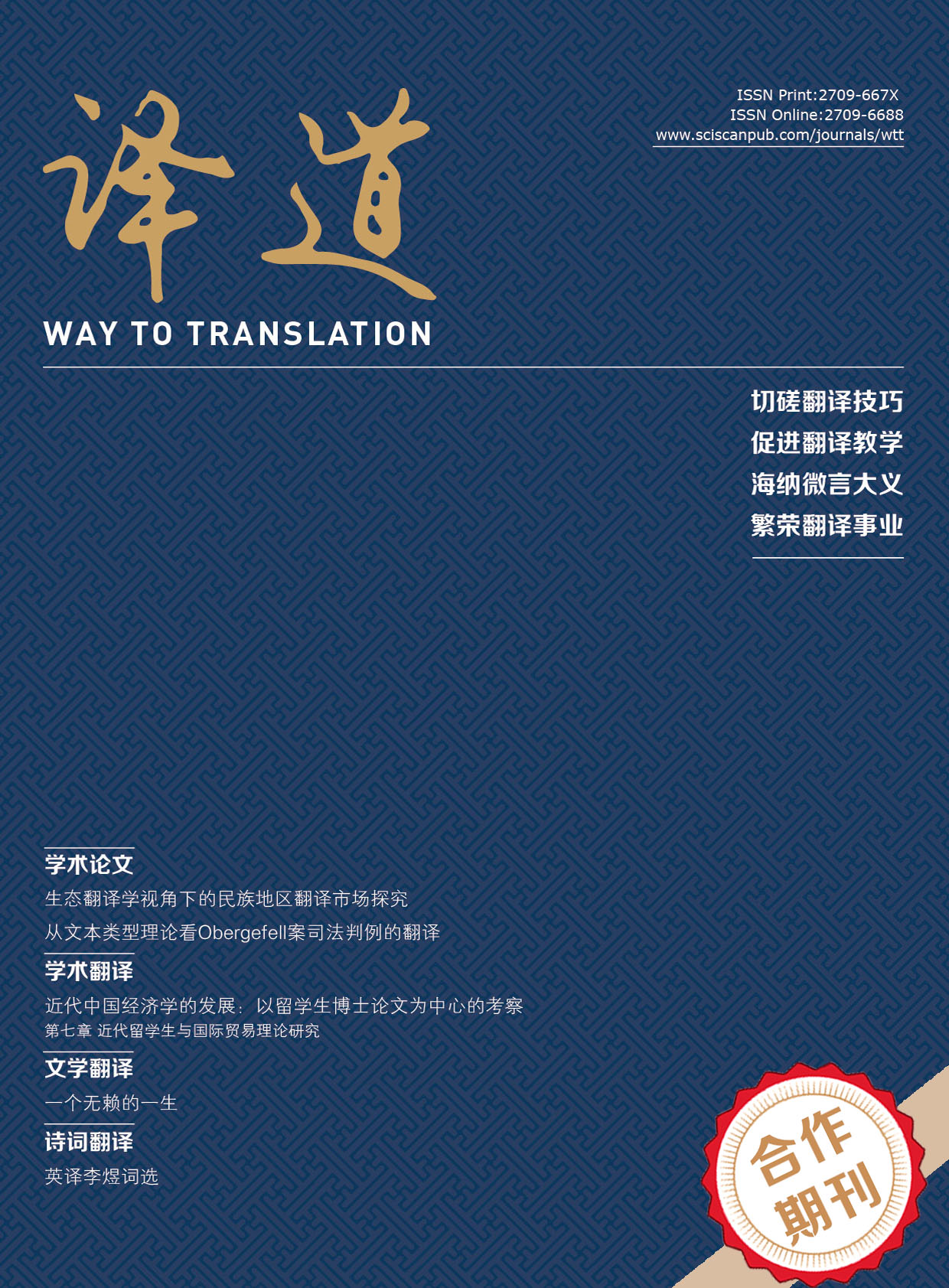Way to Translation
ISSN Print: 2709-667X
ISSN Online: 2709-6688
Contact Editorial Office
Subscribe to the latest published information from SCISCAN
浅议进口护肤品产品推介汉译中的合规性
A Study on the English-Chinese Translation of Imported Skincare Products’ Description from a Legal Perspective
- Authors: 谢欣¹ 郑文欣² 滕雪²
-
Information:
1.华东师范大学外语学院,上海; 2.对外经济贸易大学,北京
-
Keywords:
Imported skincare products; Translation of product description; Compliance awareness; Translation strategies进口护肤品; 产品推介翻译; 合规意识; 翻译策略
- Abstract: Laws and regulations are important parts of translation norms. In recent years, as the import amount of skincare products in China increases year by year, cases of false publicity occur frequently. The study finds that there are three main problems in the English-Chinese translation of imported skincare products’ description regarding laws and regulations, namely, the promotion of special effects beyond categories, the explicit or implied medical effects of products, and the use of groundless data to exaggerate the efficacy. The two main reasons for these problems are the excessive pursuit of the attractiveness and the differences between relevant laws and regulations at home and abroad, while the lack of compliance awareness of translators in advertising translation and the imperfect curriculum system for translation masters are the root causes of these problems. This paper gives some suggestions from the perspectives of translators’ strategies and translation courses, in the hope of helping to optimize translators’ translation strategies and increase their compliance awareness. 法律法规是翻译规范的重要组成部分。近年来,随着我国护肤品进口额逐年增加,进口护肤品虚假宣传案例频发。本研究发现,逾越类别进行特殊用途宣传、明示或暗示产品医疗作用、使用无依据的数据夸大功效是护肤品产品推介汉译存在的三个主要合规性问题。过度追求译文吸引力、国内外相关法律法规的差异是导致这类问题的两个主要原因,而译者在广告翻译中的合规意识不足、针对翻译硕士的课程体系不够完善是引发这类问题的根源。本文从译员的翻译策略和翻译课程设置两个角度给出了相应建议,以期对优化译者的翻译策略,培养翻译人才的合规意识有所帮助。
- DOI: https://doi.org/10.35534/wtt.0102007
- Cite: -
















